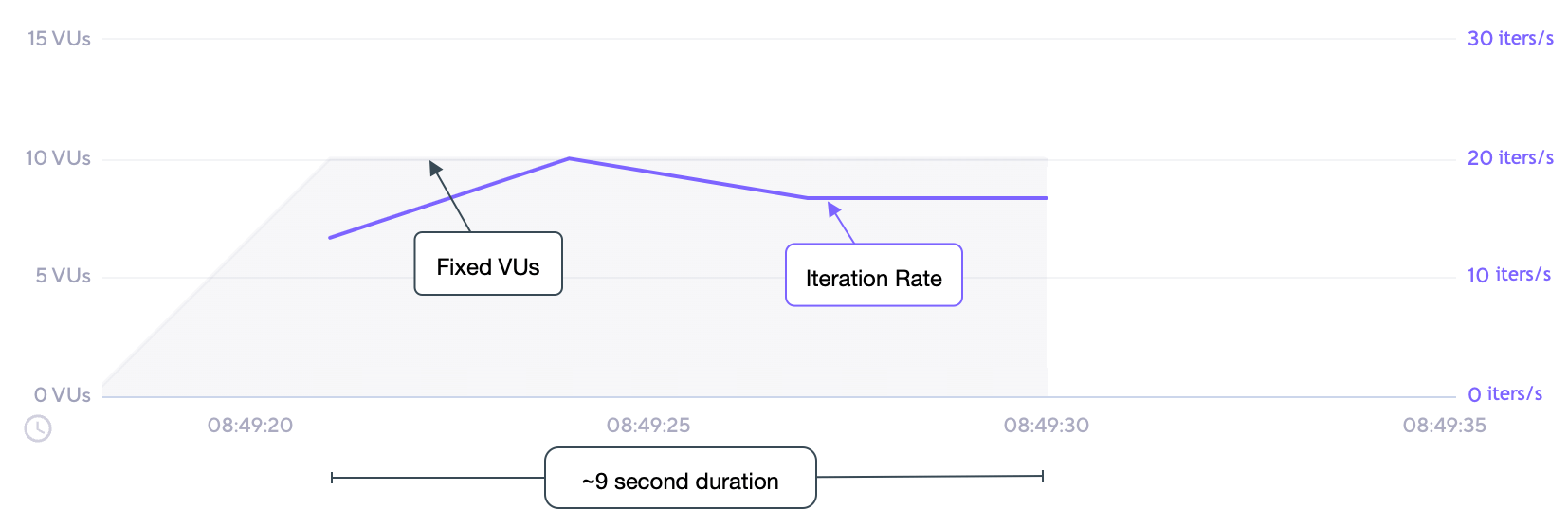Important: This documentation is about an older version. It's relevant only to the release noted, many of the features and functions have been updated or replaced. Please view the current version.
Per VU iterations
With the per-vu-iterations executor, each VU executes an exact number of iterations.
The total number of completed iterations equals vus * iterations.
Options
Besides the common configuration options, this executor has the following options:
When to use
Use this executor if you need a specific number of VUs to complete the same number of iterations. This can be useful when you have fixed sets of test data that you want to partition between VUs.
Example
The following example schedules 10 VUs to execute 20 iterations each. The test runs 200 total iterations and has a maximum duration of 30 seconds.
import http from 'k6/http';
import { sleep } from 'k6';
export const options = {
discardResponseBodies: true,
scenarios: {
contacts: {
executor: 'per-vu-iterations',
vus: 10,
iterations: 20,
maxDuration: '30s',
},
},
};
export default function () {
http.get('https://test.k6.io/contacts.php');
// Injecting sleep
// Sleep time is 500ms. Total iteration time is sleep + time to finish request.
sleep(0.5);
}Observations
The following graph depicts the performance of the example script:

Based upon our test scenario inputs and results:
- The number of VUs is fixed at 10, and are initialized before the test begins;
- Total iterations are fixed at 20 iterations per VU, i.e. 200 iterations,
10 VUs * 20 iters each; - Each iteration of the
defaultfunction is expected to be roughly 515ms, or ~2/s; - Maximum throughput (highest efficiency) is therefore expected to be ~20 iters/s,
2 iters/s * 10 VUs; - The maximum throughput is reached, but not maintained;
- Because the distribution of iterations is even among VUs, a fast VU may finish early and be idle for the remainder of the test, thereby lowering efficiency;
- Total duration of 9 seconds is slightly longer than shared iterations due to lower efficiency;
- Overall test duration lasts as long as the slowest VU takes to complete 20 requests.


